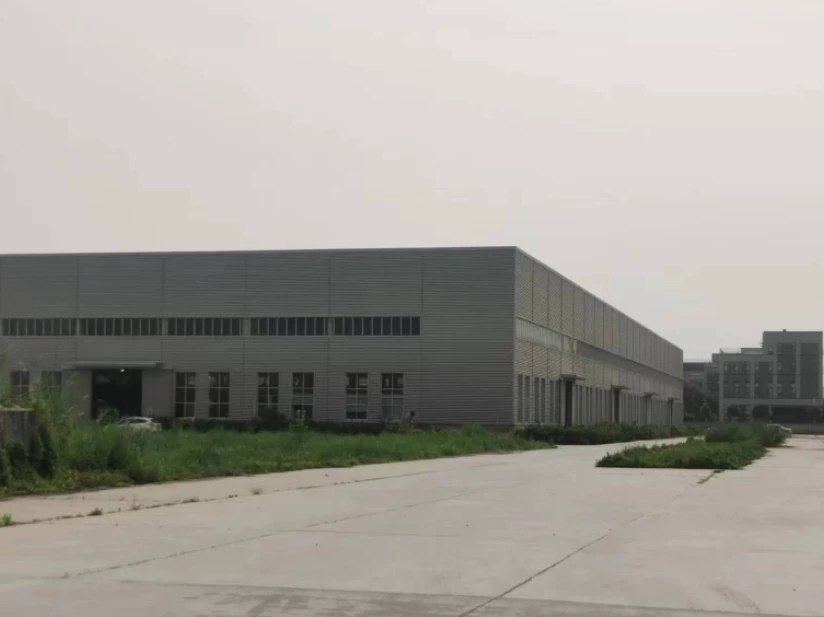IBR Roll Forming Equipment for Efficient Construction and Roofing Solutions
Understanding IBR Roll Forming Machines A Comprehensive Overview
The construction and manufacturing industries have continually embraced innovations in tooling equipment, leading to enhanced efficiency, improved product quality, and optimized processes. Among these innovative tools is the IBR roll forming machine, a specialized piece of equipment designed for the production of IBR (Inverted Box Rib) profile sheets, widely used in roofing and cladding applications.
What is an IBR Roll Forming Machine?
An IBR roll forming machine is a piece of machinery that continuously shapes metal sheets into IBR profiles. The process begins with flat metal sheets, typically made from steel or aluminum, which are fed into the machine. Through a series of rollers arranged in a specific configuration, the metal is gradually formed into the desired shape. The IBR profile, characterized by its distinctive ribbed design, offers significant structural benefits, including enhanced strength and rigidity, making it a popular choice for roofing and wall applications.
Advantages of IBR Profile Sheets
1. Strength and Durability The unique design of IBR sheets provides excellent load-bearing capacity, making them suitable for various structures, including residential homes, commercial buildings, and industrial facilities.
2. Aesthetic Appeal IBR sheets are available in various finishes and colors, allowing architects and builders to choose options that complement their design vision. The clean lines of the ribbed profile add a modern touch to any structure.
3. Easy Installation The lightweight nature of IBR sheets facilitates easier handling during installation, reducing labor costs and time on-site.
4. Cost-Effective The combination of durability, low maintenance, and energy efficiency contributes to the cost-effectiveness of IBR roofing and cladding solutions over the product's lifespan.
5. Water Drainage The design of the IBR profile allows for effective water drainage, minimizing the risk of leaks and water buildup, and enhancing the longevity of the roof.
The Roll Forming Process
The roll forming process involves several key stages
1. Material Preparation High-quality steel or aluminum sheets are selected for processing. The thickness of the material will depend on the final application requirements.
ibr roll forming machine

2. Feeding and Alignment The metal sheet is fed into the machine, where it is aligned for precise shaping. Proper alignment is crucial for achieving consistent profile strength across the length of the sheet.
3. Roll Forming As the sheet moves through the series of rollers, it is gradually shaped into the IBR profile. Each roller performs a specific function, bending the sheet incrementally until it achieves the final configuration.
4. Cutting to Length After the roll forming process, the continuous length of IBR profile sheets is cut into designated lengths as per customer requirements.
5. Quality Inspection The finished sheets undergo rigorous quality checks to ensure compliance with industry standards and specifications.
Key Considerations When Choosing an IBR Roll Forming Machine
When selecting an IBR roll forming machine, several factors should be considered
1. Machine Capacity Evaluate the capacity based on the production volume required. Machines come in various sizes and capabilities; choosing one aligned with your operational needs is essential.
2. Customization Features Look for machines that can be customized to produce different pitches, widths, and material thicknesses. This flexibility allows for more versatile product offerings.
3. Energy Efficiency Consider machines that are designed for energy efficiency. This can help reduce operating costs and environmental impact.
4. Reliability and Maintenance Invest in equipment that is known for its reliability and low maintenance needs. A solid warranty and customer support options are also critical aspects to evaluate.
5. Cost While initial costs are important, consider the machine's total cost of ownership, including operation, maintenance, and potential downtime.
Conclusion
In summary, an IBR roll forming machine plays a vital role in the production of high-quality IBR profile sheets that meet the growing demands of various construction applications. By understanding the process and advantages of these machines, manufacturers can streamline their operations, improve product quality, and ultimately enhance their competitiveness in the market. The evolution of roll forming technology continues to pave the way for innovative construction solutions, shaping the future of how we build and design our world.
-
High Frequency Straight Seam Welded Pipe Production Line|BzZhou Xinghua|Precision Welding&EfficiencyNewsJul.30,2025
-
High Frequency Straight Seam Welded Pipe Production Line - BzZhou Xinghua|Precision Engineering&EfficiencyNewsJul.30,2025
-
High-Frequency Straight Seam Welded Pipe Production Line-BzZhou Xinghua Machinery Equipment Manufacturing Co., LTD.NewsJul.30,2025
-
High-Frequency Straight Seam Welded Pipe Production Line-BzZhou Xinghua Machinery Equipment Manufacturing Co., LTD.|Precision Manufacturing, High EfficiencyNewsJul.30,2025
-
High Frequency Straight Seam Welded Pipe Production Line-BzZhou Xinghua Machinery Equipment Manufacturing Co., LTD.|Precision Steel Pipe Manufacturing&Industrial EfficiencyNewsJul.29,2025
-
High-Frequency Straight Seam Welded Pipe Production Line-BzZhou Xinghua Machinery Equipment Manufacturing Co., LTD.|Precision Steel Pipe Manufacturing&Industrial EfficiencyNewsJul.29,2025


